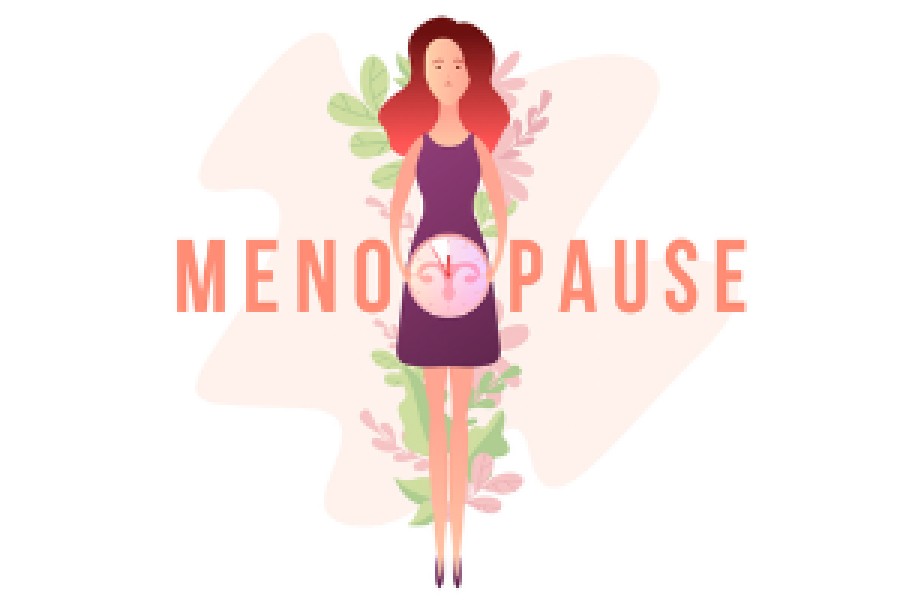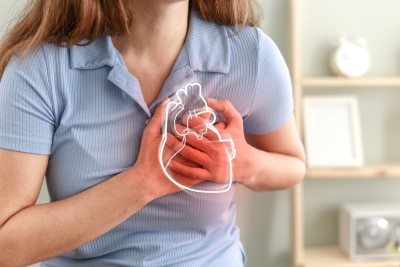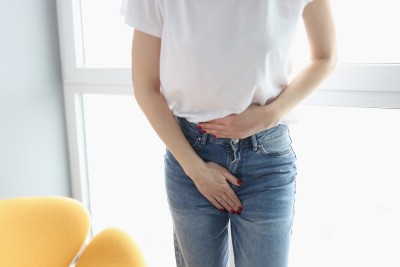Free shipping for orders over 39.00€
Menopause

Menopause is a condition that all women will experience in our lives.
But what is menopause and how it evolves in our body? It only affects our body or and our mental health as well? When does it happen and how would I know?
These are some of the questions that come in mind, which we ‘ll try to clarify one by one through this article. Let’ s start from scratch.

Menopause begins in a woman’ s body as soon as her ovaries stop producing estrogen, the main hormone of the female reproductive system. As a result, menstruation appears at irregular intervals and there is no stable reproductive cycle. Also, the amount of blood changes: sometimes may decrease, sometimes may be more. This is called “premenstrual period” and can last up to a year.
When menstruation (blood loss) stops completely, then menopause occurs. Menopause unfolds between the age of 45 to 55 years old, but this varies from woman to woman. So, how does it manifest in our body?
- Hot flushes
- Night sweats
- Sensitiveness in breast
- Fluctuate mood
- Depression
- Reduction of sexual desire
- Feel of fatigue
- Vaginal dryness and discomfort during sex
- Frequent urination and incontinence when sneezing or coughing
- Sleep and concentration disorders
- Weight gain
Hot flashes
Hot flashes are of the most important factors that discomfort a woman and can begin 5 years prior menopause and last for the next 10 years. It is an uncontrollable and spontaneous burning sensation that appears in the throat and face.
Hot flashes can be accompanied by redness, sweating or chills, as well as the well-known night sweats. Hot flashes are due to the fact that the reduction of estrogen levels disrupts the functioning of the mechanisms that regulate body temperature.
Factors like alcohol, stress and strong emotions can make hot flashes worse and it is best to avoid smoking, caffeine and spicy foods.
Depression and mood swings.
Is menopause solely to blame?
Menopause definitely brings a huge change in a woman's life. The symptoms a woman has at this stage, along with other changes that may occur in her life at the time can greatly affect her psychology.
A woman "says goodbye" to a great part of her life which is associated with her reproductive age, fertility, youthness…
Still, the way a woman approaches menopause and how she prepares herself for it, is very crucial. Afterall, it is the biggest change in her life and like all changes she needs time, patience and positive thinking.
It' s a new chapter in a woman's life where very beautiful things can happen.
How can I deal with these symptoms for a smoother menopause?
It is important to follow a healthier lifestyle. Your diet should be as balanced as possible. Soy helps fight hot flashes. Soy products contain high levels of isoflavones, phytohormones that help regulate menopausal symptoms, such as hot flashes. Tofu contains iron and calcium, essential minerals that ensure good health.
To reduce the symptoms of menopause, you can also - if you haven' t already- start exercising, while it is beneficial to maintain your weight at normal levels as well as get enough sleep.
Menopause and vaginal dryness.
In menopause, the production of estrogen decreases, which results to the vagina' s wall becoming thinner and drier. At the same time, the mucous membranes produce less secretions, so the vagina becomes drier and more sensitive. Plenty of women who experience this problem, often report that they feel itchy and irritated, while many have pain during sexual intercourse.
There is a multiple solution to the problem, either with conventional hormone replacement therapy or with hormone replacement therapy with biosimilar hormones, but in any of these cases you must first consult your gynecologist.
However, you can use medical treatments that does not require a visit to a doctor. These are products easily found in pharmacies, that can relieve symptoms in simple and easy ways.
Find here all the supplements for MENOPAUSE.






